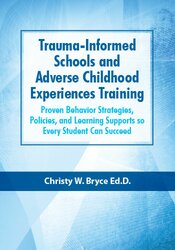

When you entered education, you thought it would be about lesson plans, curriculum, and seating charts.
You weren’t expecting kids who curse, hit, kick, and scratch other students, and bang their heads on the table when they’re frustrated. Kids who are constantly “in trouble” at school and have difficulty grasping the material being taught.
But sometimes the trauma of physical and sexual abuse, hunger, violence, and suicide lie behind these behaviours. And when you hear the stories of your students pain you’re left feeling blindsided, unprepared, and desperate for guidance on how you can help.
Whether you’re a teacher, administrator, counsellor, social worker or anyone who works with students, this program will provide you with the step-by-step direction, tools, and techniques you need to work more capably and comfortably with kids who’ve experienced trauma. The strategies and comprehensive learning supports shared at this event will enable you to create a better school climate, boost academic achievement, and improve school safety while building critical skills in students like self-awareness, self-regulation, empathy, and an openness to teamwork and cooperation.
Get the trauma-sensitive skills and strategies you need to ensure every student can succeed!
| File type | File name | Number of pages | |
|---|---|---|---|
| Manual - Trauma-Informed Schools and Adverse Childhood Experiences (4.3 MB) | 31 Pages | Available after Purchase | |
| Instructions for ASHA credit - Self-Study Only (64.4 KB) | Available after Purchase | ||
| Manual for Parts I-III - Trauma-Informed Schools and Adverse Childhood Experiences - French (4.27 MB) | 31 Pages | Available after Purchase | |
| Manual for Parts I-III - Trauma-Informed Schools and Adverse Childhood Experiences - Italian (4.27 MB) | 31 Pages | Available after Purchase |
Christy W. Bryce, Ed.D., the Director of Intervention for Warren County Public Schools in Bowling Green, KY has spent her career collaborating with educators, administrators and school staff to determine how best to intervene and support students who are demonstrating challenging behaviors.
Dr. Bryce has over 20 years of experience in education as a school psychologist and special education teacher and is highly experienced in consulting on trauma-informed practices, differentiated instruction, and academic and behavioral interventions for at-risk students and students with special needs.
A highly requested trainer, Dr. Bryce is experienced in establishing, coordinating, and sustaining large scale initiatives in the context of a linguistically and culturally diverse public school system. She earned her Ed.S. degree in School Psychology from Western Kentucky University and her Ed.D. degree in Education, Leadership and Policy from Vanderbilt University’s Peabody College.
Speaker Disclosures:
Adverse Childhood Experiences (ACES): The Hidden Public Health Emergency Affecting Schools
Spot the Warning Signs of Trauma in Students
Trauma-Informed Practices for Schools and Classrooms: Establish Safety, Trust, Choice, Collaboration, and Empowerment
5 Ways to Build a Psychologically Safe Classroom
Challenging Behaviors Intervention Toolbox: Better Outcomes for Overreactive, Aggressive, and Avoidant Students
Culturally Responsive Practices and Techniques: Support Sensitivity and Strengthen the School-Family Alliance
Trauma-Sensitive Approaches to Discipline and Corrective Action
Supports for Educators and Staff Who Experience Secondary Traumatic Stress
Please wait ...